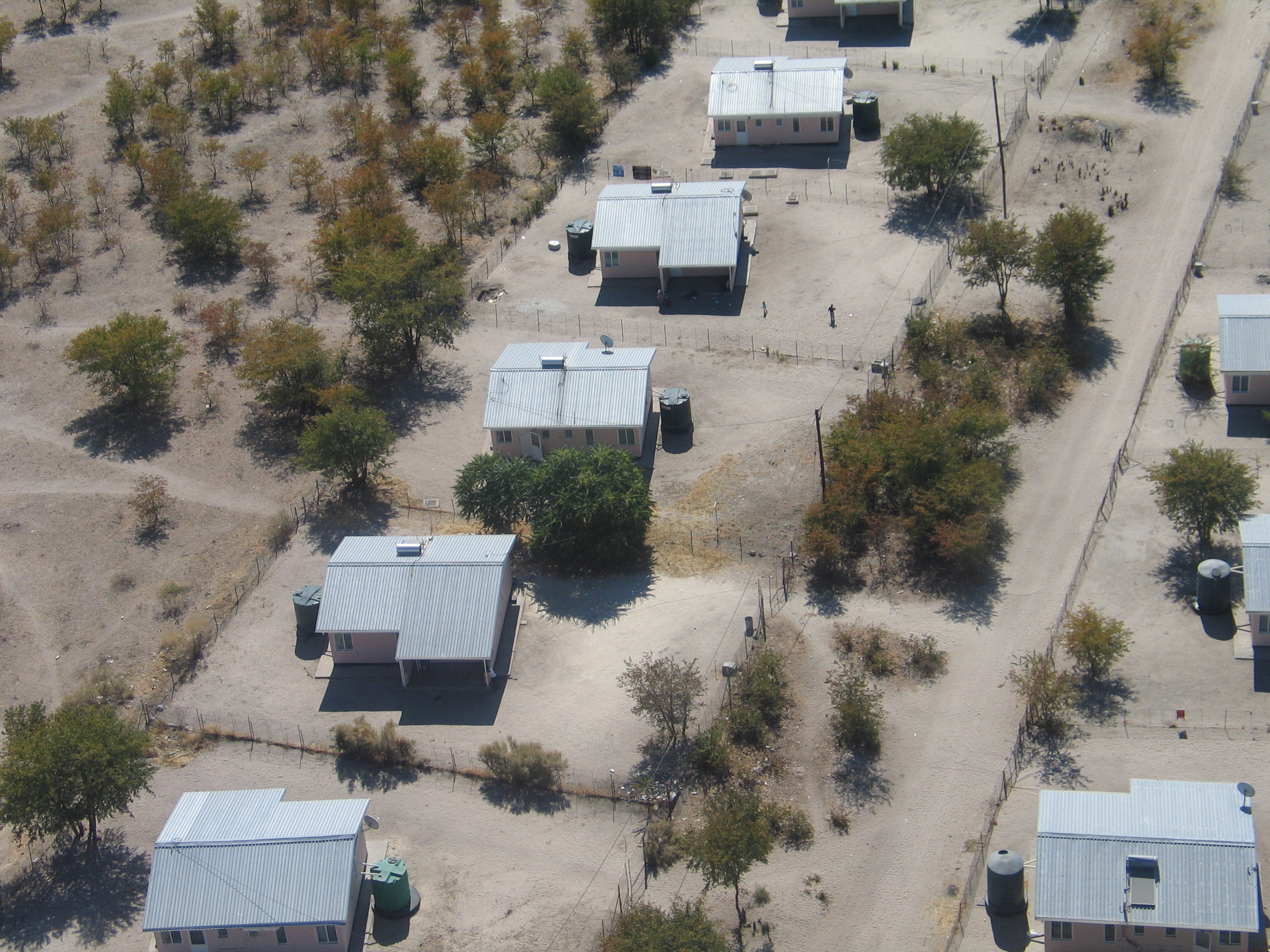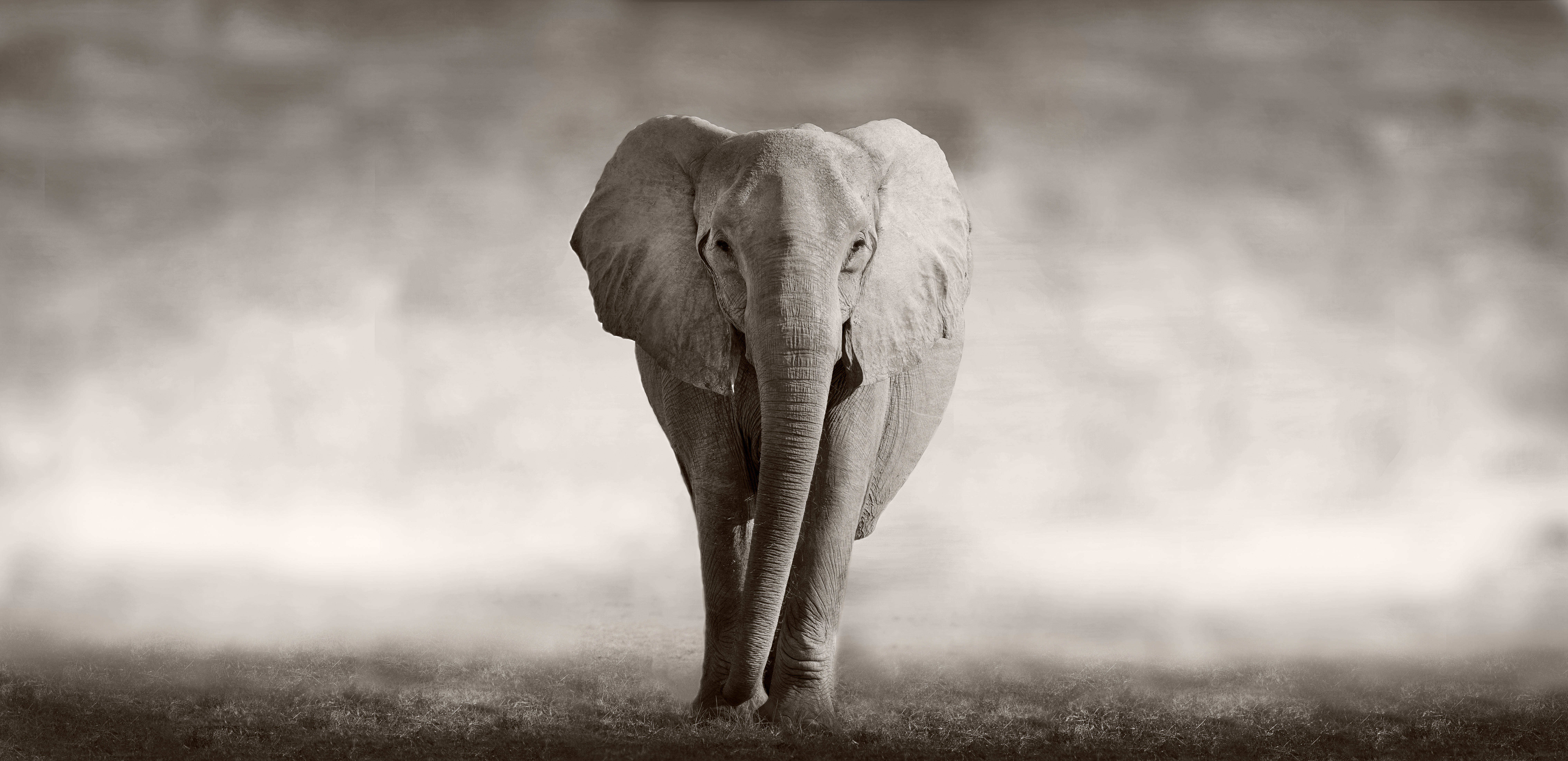Where do you see more value in the following pictures? Which is more important? Both of the following photos courtesy of DollarPhotoClub.com.

Actions have consequences. What seems like a good policy often causes more of the harm you wanted to prevent.
If you want to stop big game hunting, the unintended consequences include increasing the amount of farmers’ crops that get gobbled up by elephants and increasing the amount of ranchers’ livestock that gets gobbled up by lions. Villagers will be poorer.
I have previously discussed this issue: If you want to increase the number of large animals like elephants and rhinos, allow them to be privately owned and hunted.
Two years ago Botswana banned trophy hunting of big game animals. Since then the number of conflicts between big animals and humans has soared.
There are huge numbers of large animals in Botswana, which previously were managed as a public resource, with hunting intentionally managed and much of the fees shared with local villages.
The New York Times provides the details on 9/12: A Hunting Ban Saps a Village’s Livelihood. The NYT of all places. It is amazing to me that their editors even allowed the story to run.
One quoted person said he has lost 30 goats since the hunting ban went into effect, elephants have destroyed his maize and sorghum fields, his family no longer gets some of the big game meat the trophy hunters used to leave behind, and falling income for the village from hunting fees have ended his mother’s $200 a year pension. He and his family have suffered as a direct result of the ban.
In one sentence, that shows the devastating impact of valuing animals more than humans.
People in another village live in fear of the lions who now roam about the village every night. The lions used to feast in the bush on the carcasses left by trophy hunters. Now the lions have to grab small livestock in the villages to get enough to eat.
Here is the economic impact, as you already realized if you have thought through the issue, but the article explains again:
When trophy hunters pay huge fees to hunt big game animals, the critters are a valuable resource. Everyone in the community is motivated to protect the animals and maximize the fees realized. There is lots of employment, income for the village, a bit of extra protein, and fewer animals plundering villages.
When trophy hunting is banned, the big animals become a nuisance, destroying crops and killing livestock. In neighboring Zambia during the hunting ban in that country, a local councilman was killed by a lion.
Here is the behavioral impact:
When the lions and elephants become a nuisance endangering everyone’s physical and economic live, the animals will start getting killed by locals who don’t want their lives destroyed.
One lion was shot while trying to jump the fence to get out of an animal pen. The owner of the pen denies knowledge of how the lion died as the writer notes the others in the conversation give a knowing smile. Yeah, he shot the lion. He’s also savvy enough to deny doing so.
One wildlife management expert said that when hunting is allowed, there are actually less big game animals killed than when hunting is banned. Let me say it again: more big animals die when trophy hunting is banned.
The massive unintended consequence is that a hunting ban will reduce the number of living big game animals.
What is more valuable to you?
Zambia’s minister of tourism said
“In Africa, a human being is more important than an animal. I don’t know about the Western world,” she added, echoing a complaint in affected parts of Africa that the West seemed more concerned with the welfare of a lion in Zimbabwe than of Africans themselves.
So I have two questions for you to consider:
First is the one I already mentioned –
- Which is more important to you: big game animals or humans?
Here is the second question:
- How would you rather the residents of a village view lions and elephants: Valuable economic resources to be protected or destructive predatory threats to be eliminated?
The massively huge irony is that a larger number of big animals will be alive if humans are more important and big game animals are seen as a valuable resource.
A third question comes to mind, which is a recurs in a variety of formats on this blog: If you had a choice, would you rather feel good about yourself or do you want to actually help people in Africa who are struggling to get by?
Here is a fourth question: Do you want to see more or less lions and elephants living on the earth?
